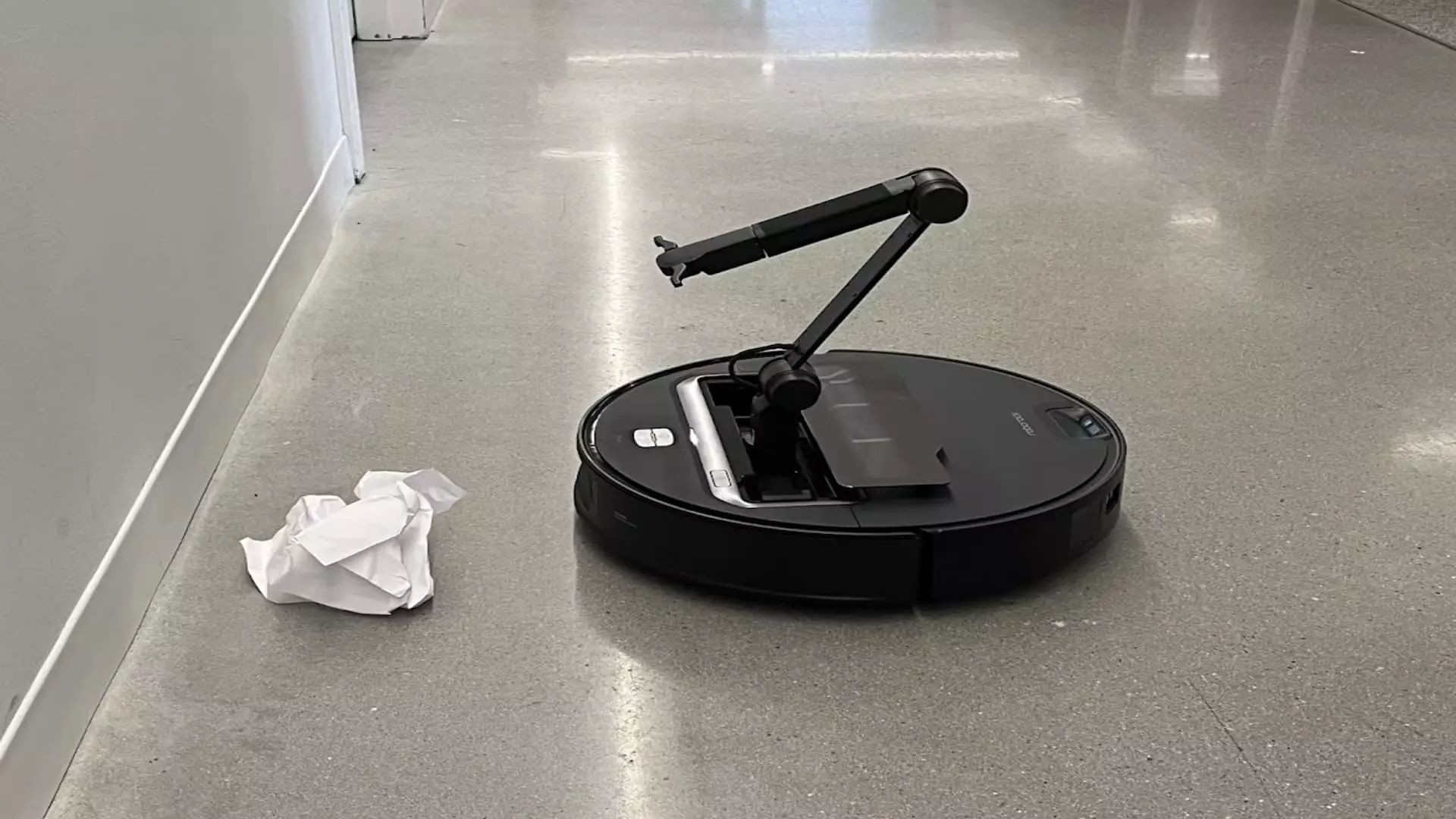The home cleaning industry is witnessing a radical transformation, driven primarily by innovations in artificial intelligence (AI). One of the forefront companies in this domain, Roborock, unveiled its latest offering, the Saros Z70, which boasts a unique folding arm designed to detect and remove common household obstacles. This model is indicative of a significant shift in how robotic vacuum cleaners are perceived and utilized in modern households. According to Roborock’s President, Quan Gang, the evolution of these devices is anticipated to make robot vacuums as indispensable as washing machines within the next few years.
The Saros Z70 exemplifies cutting-edge robotics, combining advanced AI capabilities with smart obstacle detection functionality. The device can identify and deal with items such as socks, towels, and small personal belongings through its innovative design, which allows the vacuum cleaner to actively engage with its environment rather than merely traverse the floor. This leap in technology is made possible by the company’s ongoing commitment to AI research, marking a new phase in automated home cleaning where machines become increasingly adept at handling real-life scenarios that homeowners face daily.
Moreover, the machine can recognize items weighing up to 300 grams, which is significant when considering the diversity of clutter that typically populates living spaces. Such advancements point toward a future where robotic devices are not only helpers but autonomous participants in managing household chores.
As we explore the ramifications of Roborock’s technological innovations, it is essential to contextualize its position within the broader market. The demand for robotic vacuums has been steadily increasing since the introduction of devices like the Roomba in 2002. Yet, Quan emphasizes that global penetration rates for these machines remain surprisingly low—hovering just over 10% in developed nations and even lower in developing regions. This provides a dual perspective: while challenges remain, there exists a vast potential for market growth as consumer awareness and confidence in robotic cleaning technology evolve.
The announcement of the Saros Z70 comes ahead of major exhibition events like the Consumer Electronics Show, positioning Roborock at the forefront of the industry’s narrative regarding smart appliances. Considering the increasing consumer eagerness for convenience-driven solutions and the growing capabilities of AI, Roborock can harness this inherent market potential swiftly.
Competition within the robotic vacuum sector is fierce, with several companies vying for market share. Notable competitors include Ecovacs and iRobot, both of which have introduced models boasting self-emptying capabilities. The high-end offerings from Roborock, such as the S8 MaxV Ultra, reinforce the brand’s competitive edge by setting benchmarks for functionality and price points. Reviews from platforms like The Verge and Wired highlight the efficiency of Roborock products, underscoring their technological superiority.
As mentioned, the pricing strategy remains a crucial factor, with some models like the S8 MaxV Ultra priced at $1,799.99. Despite being on the higher end of the spectrum, the targeting of affluent consumers seeking premium cleaning solutions aligns well with the company’s branding strategy. Furthermore, the introduction of a mid-range option like the Qrevo S for $800 reflects Roborock’s attempts to cater to a broader audience and thus gain further traction in the market.
Investment in Research and Development
Roborock’s commitment to innovation is underscored by its substantial investment in research and development, which reached 9.1% of operating revenue in early 2024. The dedication to building a robust research team—aiming to scale its workforce from 30 to 300 researchers—indicates the company’s intent to remain at the technological forefront. This expansion is paramount in establishing a sustainable competitive advantage over rivals in a rapidly evolving market landscape.
In an era where rapid technological advancements challenge businesses, Roborock’s proactive approach towards esoteric research may enhance its adaptability and innovation, thus securing its position as a market leader.
As Roborock prepares to launch the Saros Z70 in major markets, the implications of its AI-driven technologies extend beyond mere convenience. This evolution represents a cultural shift towards recognizing robotic vacuum cleaners as vital components of household management, akin to washing machines. The integration of tailored technology and expansive market potential places Roborock in a unique position to shape the future of home cleaning, promising a symbiotic relationship between technology and everyday life.
Watchers of the consumer electronics landscape should keep a close eye on Roborock as it navigates the challenges and opportunities of product innovation, market competition, and consumer adoption. The changing nature of home cleaning technology, exemplified by Roborock’s latest offerings, heralds an exciting future for users around the globe.

